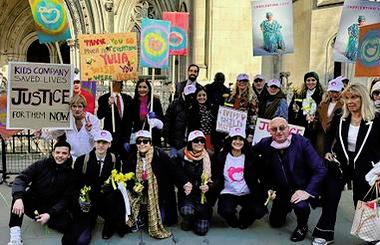The Charity Commission is set to amend its 2022 inquiry report on Kids Company after a judicial review found that parts of it were “irrational” and “unfair”.
A High Court judgment yesterday dismissed the remainder of a challenge from the charity’s former clinical director, Michael-Karim Kerman, who had claimed that the report “inaccurately depicts the reasons for Kids Company’s closure, abjectly failing to acknowledge the harmful impact of unfounded allegations and external pressures”.
In response to the judicial review, which made no order as to costs, the commission stated: “We acknowledge its finding that we made important errors in relation to two paragraphs of the report and will act to remedy this.”
The regulator told Civil Society that it is still waiting to hear from the court about its expectations for the next steps.
Meanwhile, the Good Law Project, which supported Kerman’s legal challenge, stated: “Questions must now be asked about why the Charity Commission chose to waste huge sums of public money producing and defending a flawed report.”
Kerman had won the right to challenge the regulator’s report following Kids Company founder Camila Batmanghelidjh’s death on 1 January last year.
‘Top 25’ beneficiaries
After the charity’s closure in 2015, the High Court cleared Batmanghelidjh and Kids Company’s trustees of being unfit to run the charity in 2021.
However, the commission’s inquiry report, published a year later, said that the charity should have built up reserves, ensured its board had the right skills, and maintained better records.
The report also said that the charity’s repeated failure to pay HMRC or its own staff on time amounted to formal “mismanagement in the administration of the charity”.
Yesterday’s verdict by Justice Sheldon found that paragraphs of the regulator’s report related to the charity’s “top 25” beneficiaries were irrational.
The commission’s 2022 report states that some of the payments made to the charity’s top 25 beneficiaries by the trustees were not “made in the best interest of the charity”.
However, Sheldon stated that appropriate scrutiny had been applied by the trustees to those payments, and that the commission’s observations gave rise to “the innuendo that the payments to the top 25 may not have been justified – are unbalanced and one-sided”.
“This is extremely unfair to the charity and the trustees,” the judgment reads.
“Although the commission has a discretion as to what to include in the report of a statutory inquiry, that discretion must be exercised lawfully.
“Creating such extreme unfairness would not be lawful: in public law terms, it is irrational.”
Reserves levels
The commission’s 2022 report stated that if the charity had had a higher level of reserves, it may have been able to weather the storm of criminal investigation and avoid insolvency in a more orderly fashion.
It stated that “the trustees’ decision to operate with a low level of reserves meant they could not do so”.
Sheldon’s judgment states that “this is a clear criticism of the trustees and would be likely to have a materially negative impact on them as the reasonable reader would view the report as the commission saying that they were, at least in part, responsible for the demise of the charity and the good work that it was doing”.
“This criticism of the trustees is, in my judgment, irrational insofar as it refers to weathering the storm and avoiding insolvency entirely,” it reads.
Sheldon stated that the commission’s criticism contradicted the High Court’s 2021 findings regarding reserves and that there is nothing in the regulator’s report to explain why it had reached a different view.
“The commission was well aware that its report into Kids Company would be carefully scrutinised, both by the trustees and others involved with the charity but also more broadly,” the judicial review reads.
“The commission had, in these circumstances, an obligation to be very careful in the statements and observations that it made. In this respect, it failed to do so.”
Related articles











